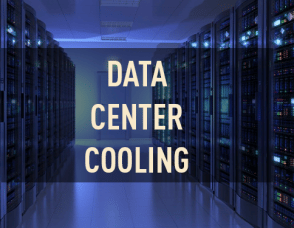Important new regulations for HVAC systems are coming, Are you ready?
Summary
- The U.S. DOE to implement new HVAC regulations as of January 1, 2023.
- Minimum required efficiency standards are increasing for commercial and residential HVAC equipment.
- New 2023 equipment could be delayed by several months with average lead time 40+ weeks due to supply shortages.
- Contact your Gateway Mechanical representative to save time and create a plan.
If you haven’t already heard, there are major regulatory changes taking place in the next couple months that could impact your HVAC systems, business, and budget.
We believe knowledge is key to being prepared and avoiding unnecessary and potentially costly issues in the future. Here’s what you need to know and how you can prepare for these major industry revisions.
New (important) HVAC efficiency standards in the New Year
| Commercial Equipment > 65,000 Btu/h | Residential Split Systems ≤ 65,000 Btu/h |
| 15% increase above current minimum IEER Ratings | 7-8% increase above current minimum SEER Ratings |
Every six years, the U.S. Department of Energy (DOE) is responsible for assessing and amending its energy conservation standards to drive significant reductions in energy usage that is technologically feasible and economically justified[AH1] .
On January 1, 2023, the DOE is implementing new regulatory requirements for new HVAC equipment. The minimum required efficiencies for commercial and residential HVAC (i.e., packaged unitary rooftops, split systems, Mini-VRF and mini-splits) equipment will increase to 15.0 SEER making HVAC equipment much more sustainable than ever before.
The major equipment manufacturers follow these regulations and have designed equipment to comply. While Canada may not have the same regulations, we source most of our equipment from manufacturers who build with the U.S. regulation in mind.
So how will this affect you?
If you have older equipment, you will want to read this
We know updates, changes, and modifications to regulations happen all the time. In fact, it’s expected. However, ongoing supply issues could affect getting access to your HVAC needs when you need them.
To start, getting replacement parts for legacy HVAC equipment is tough. For example, there is extremely limited supply of R22 refrigerant, which was banned in 2010. (see here for our tips on R22 replacement)
Plus, older equipment typically means failing components. Once you change one part, you’ll probably have to change something else soon after. With outdated equipment, not only is it hard on your budget, it’s also bad for the environment.
Additionally, manufacturers have been forced to adjust their production lines due to limited resources. With these existing supply chain challenges, you just might be waiting up to 40+ weeks for 2023 models.
Having a plan is the best solution.
While this all might sound stressful, there are solutions. With a robust strategy, we can help you minimize old equipment failures (before they happen), and plan for new equipment efficiencies that will be a time, energy and cost-savings for you and your business.
- Let’s meet. Schedule a meeting with your Gateway Mechanical representative and we will help you put together a solid strategy for your aging and new equipment needs.
- List aging equipment. We will document and identify the age of your older equipment to map out a practical replacement plan.
- Share your budget. Once you have an idea of what your budget is, we can help you schedule forecasted replacements with a defined plan that works for you.
- Keep up maintenance. If you don’t already have one, we can create a regularly scheduled maintenance plan to keep your existing equipment running smoothly.
We’re here to help you create a plan that works for you.
We are here to help
While you’ve likely already started your 2023 planning, a strategy to replace outdated systems, address industry and regulatory compliancy—as well as ongoing supply shortages—is the best solution.
Rely on Gateway Mechanical to help you prepare for your commercial and residential HVAC equipment needs to minimize stress and avoid performance (and budget) issues in the future.
To start, call 1-800-414-4929 or contact us online.
Either way, we are happy to create solutions with you and within budget.
Keep visiting our Knowledge Centre to stay on top of the latest HVAC regulations and upcoming industry changes.



